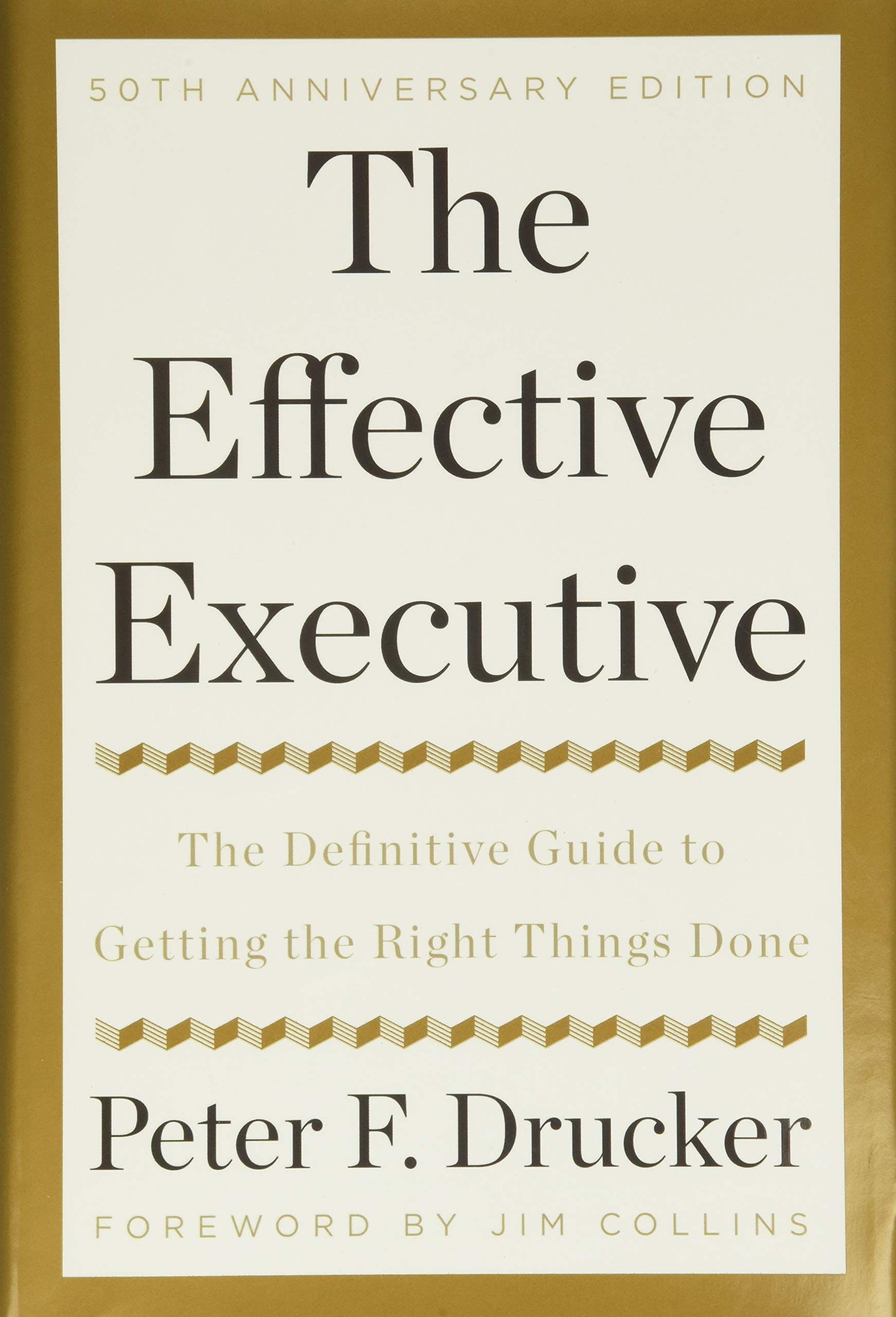The Effective Executive: Summary and Review

The Effective Executive: The Definitive Guide to Getting the Right Things Done by Peter Drucker

Review
This is one of the best career/productivity/business books of all time. Drucker is the secret that helped me rise up in my career as quickly as I did.
Summary
8 Practices of effective executives
- They asked: What needs to be done?
- They asked: What is right for the enterprise?
- They developed action plans
- They took responsibility for decisions
- They took responsibility for communicating
- They were focused on opportunities instead of problems
- They ran productive meetings
- They thought and said “we” instead of “I”
5 Habits of effective executives
- They know where their time goes
- They focus on outward contribution. They ask “What results are expected of me?” instead of “What work should I do?”
- They build on strengths (of themselves, and of others), not weaknesses
- They concentrate on the few critical areas where superior performance will produce outstanding results. They do first things first and do second things not at all.
- They make effective decisions, a judgment based on dissenting opinions instead of consensus on facts.
“Knowing where your time goes” means actually tracking this on an hour-by-hour basis, whether recorded by an assistant or aided by software.
Notes
Managing up
What can my boss do really well? How can we make use of his strength in the best way?
Assume problems are generic, not specific
Effective Executives understand that there is rarely such a thing as the exceptional case—they understand the current fire is just a manifestation of a deeper root problem.
When a fire comes up, ask: “What could this be a symptom of?” (Five Whys)
The effective decision maker always assumes initially that the problem is generic. He assumes that the event is a symptom, and looks for the true problem. If the event is truly unique, he suspects that this heralds a new underlying problem, and the “unique” event will turn out ot be the first manifestation of a new generic situation.
Evaluating competition
“What does this fellow have to see if his position were, after all, tenable, rational, intelligent?”
The effective executive is concerned first with understanding, only then does he think about who is right and who is wrong.
Priorities vs Posteriorities
The needs of [the world] have to be satisfied by common people achieving uncommon performance.
Don’t tell me you had a wonderful meeting with me. Tell me what you are going to do on Monday that’s different
